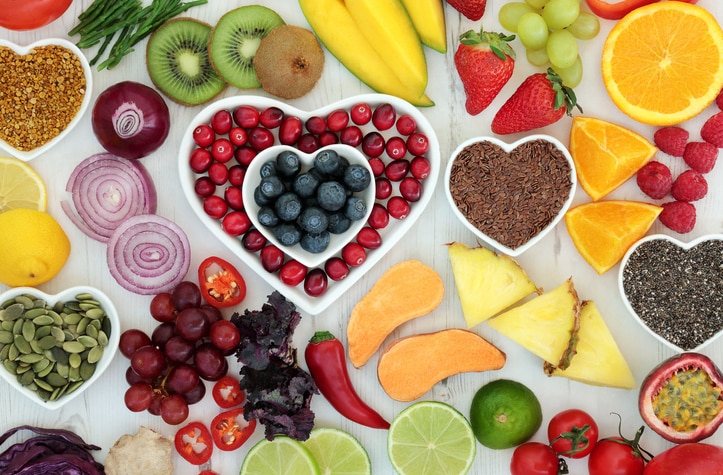Thinking about going veg? A vegetarian diet excludes meat, poultry, seafood and fish, while a vegan diet avoids all of these foods plus eggs, dairy, and other animal byproducts such as gelatin and honey. Although this can feel daunting, it’s easier than ever to adhere to be vegan, with an abundance of choices all throughout the grocery store. And in even better news, a plant-powered diet can be an excellent choice for your health!
Did you know that a vegan, plant-based diet may be beneficial for heart health in particular? Several studies have found people following a balanced vegan diet to be at a decreased risk for heart disease.
People who eat a vegan diet also typically have a lower body mass index than non-vegans. This alone could play a role in the decreased heart disease risk, but scientific literature shows that heart health benefits may remain intact regardless of BMI.
Digging into a veggie diet
A variety of factors are at play in the development of heart disease. Smoking, excessive alcohol use, excessive sedentary time and eating a pro-inflammatory diet are all known to increase risk. Luckily, these are behaviors we have the ability to control.
On the nutrition front, a well-balanced vegan diet addresses a few of these factors. By avoiding animal derived products, we eliminate all cholesterol from our diet, and decrease our intake of saturated fats. Processed meats, cheeses and many non-vegan snack foods that are high in sodium are also excluded.
A well-planned vegan diet should be abundant with vegetables, leafy greens, beans and legumes, nuts, whole grains, and fruits. Many of these foods are rich in soluble fiber, which can lower LDL cholesterol. The typical vegan diet in fact contains 50-100% more fiber than a non-vegan diet! Nuts and soy foods also play a role in maintaining healthy LDL cholesterol levels.
“Fish oil” for vegans?
Omega-3 fats are important to include in a heart-healthy diet, helping to support normal cholesterol levels. It is often recommended to consume fish twice a week (or supplement with fish oil) for heart health, but fish isn’t on the menu for a strict vegan diet. Luckily, plenty of plant-based foods, such as olive oil, almonds, walnuts, sunflower seeds and flax seeds, contain omega-3 fats.
However, it’s important to note that there are several different type of omega-3 fats. Plant-based foods contain the omega-3 fatty acid ALA. But, our body needs all types of omega-3s; the other forms are EPA and DHA, which are found in fish or fish oil. A small amount of ALA (10% or less) is converted to EPA and DHA within the body.
But, for those who don’t eat fish, a vegan omega-3 supplement (algae-based – no fish ingredients), or products like fortified soy milk, can provide adequate amounts of DHA and EPA.
This article was contributed by Kate Kanner, RDN, registered dietitian nutritionist with The Little Clinic (inside select Kroger locations). For more information about dietitian services, visit www.thelittleclinic.com/dietitians.

